50+ Sample Counselling Forms
-
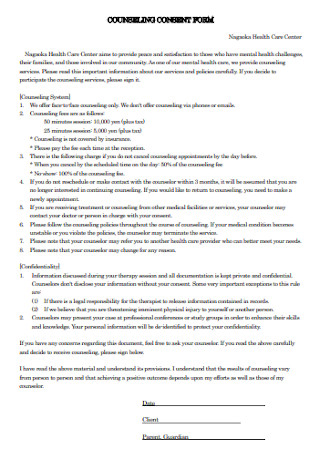
Counseling Consent Form
download now -

Student Counselling Form
download now -
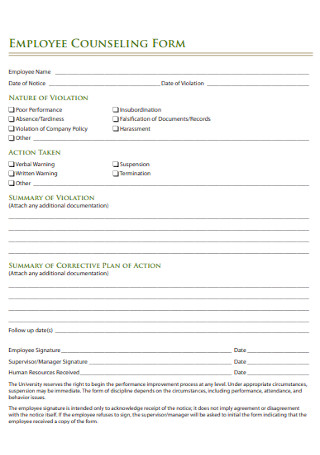
Employee Counseling Form
download now -
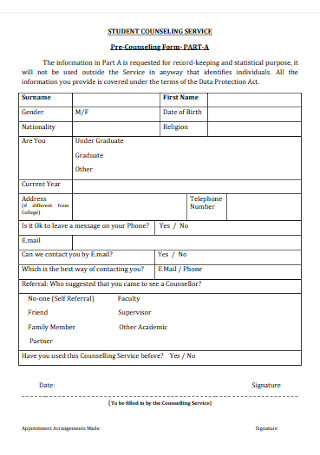
Student Counseling Form
download now -
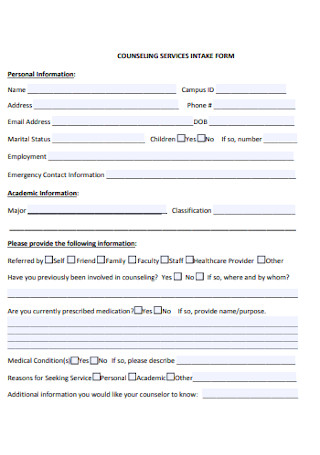
Counseling Service Intake Form
download now -

Diploma Courses Counseling Form
download now -
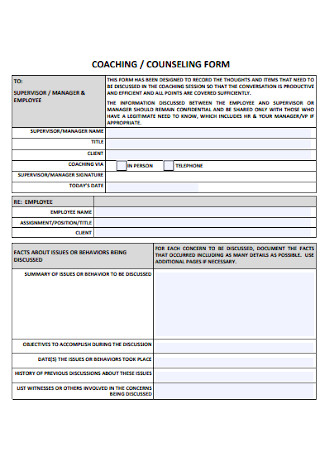
Coaching and Counseling Form
download now -
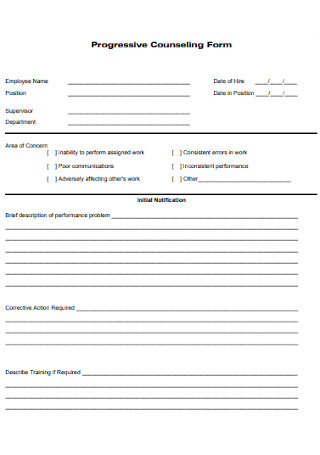
Progressive Counseling Form
download now -
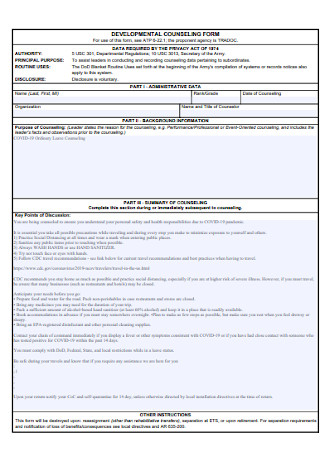
Counseling Development Form
download now -
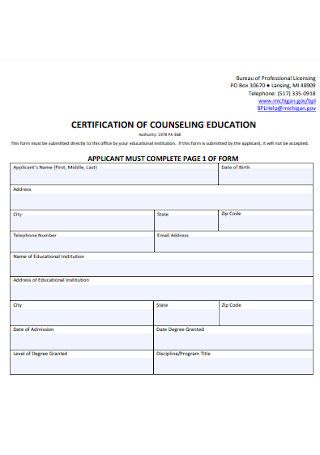
Certification of Counseling Education Form
download now -
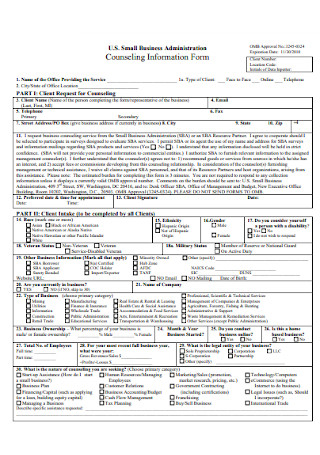
Counseling Information Form
download now -

Lifestyle Counseling Follow-up Form
download now -
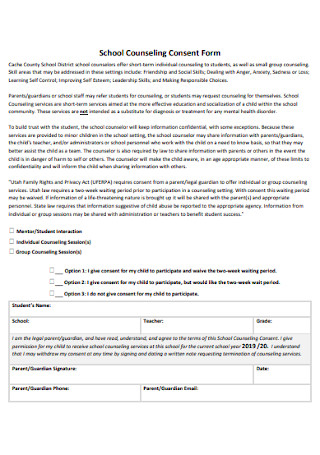
School Counseling Consent Form
download now -
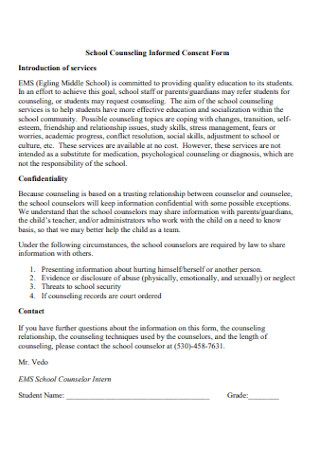
School Counseling Informed Consent Form
download now -

Counseling Form Format
download now -
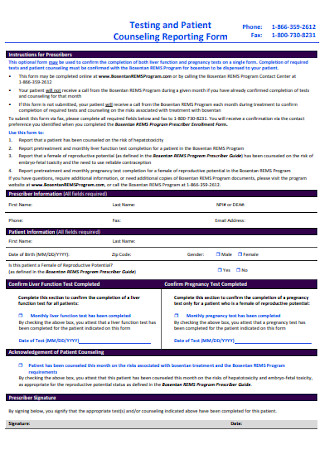
Counseling Reporting Form
download now -
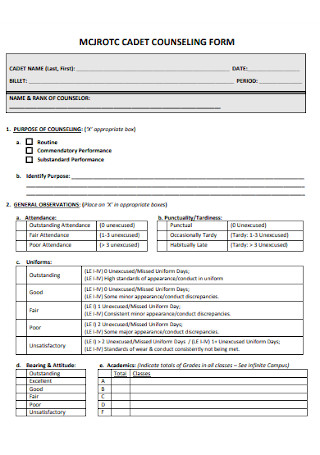
Vadet Counseling Form
download now -
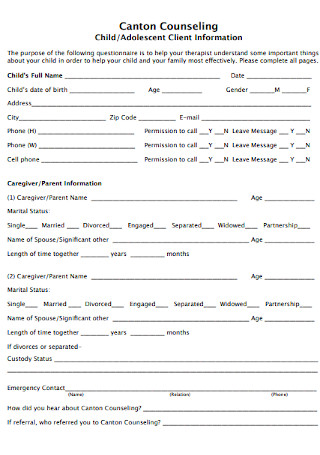
Child Counseling Form
download now -
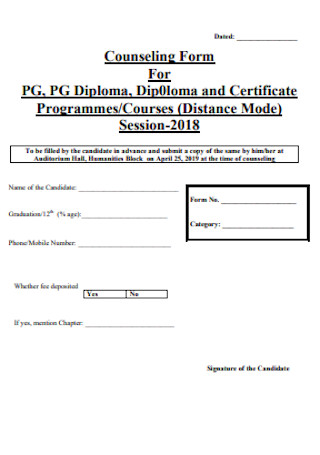
Counseling Form for PG
download now -

Basic Counseling Form
download now -
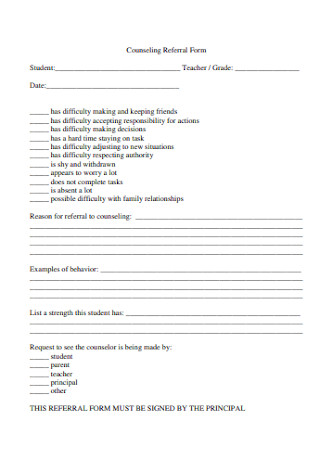
Counseling Referral Form
download now -
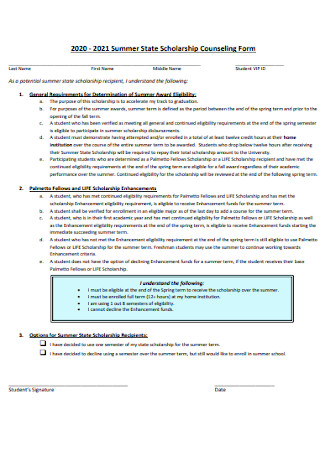
State Scholarship Counseling Form
download now -
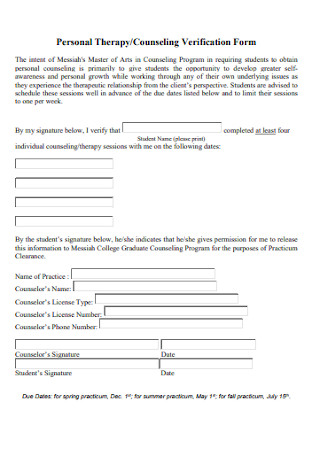
Counseling Verification Form
download now -
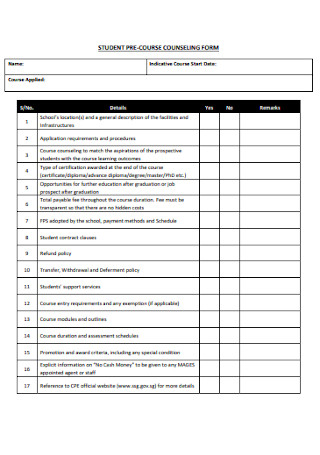
Student Pre-Course Counseling Form
download now -
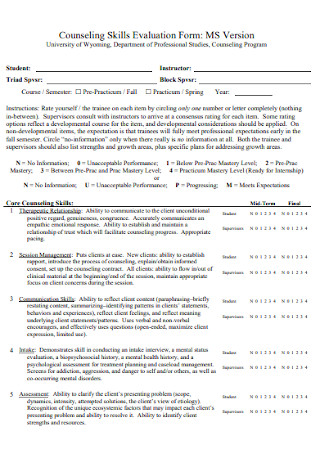
Counseling Skills Evaluation Form
download now -

Diet Counseling Referral Form
download now -
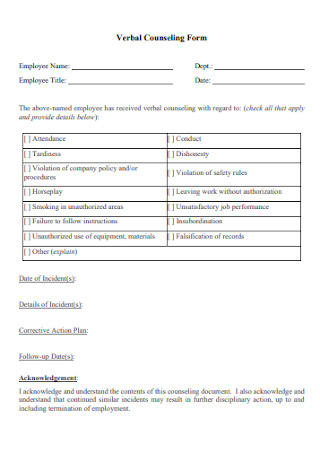
Verbal Counseling Form
download now -

School Counseling Site Supervisor Form
download now -
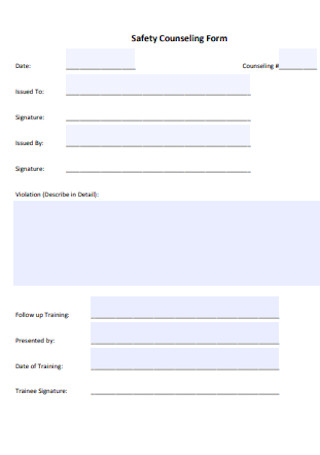
Safety Counseling Form
download now -
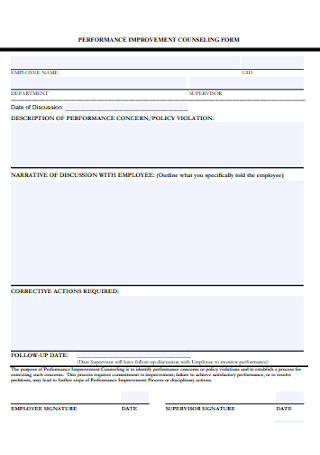
Performance Improvement Counseling Form
download now -
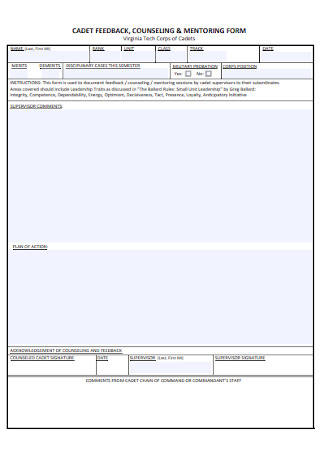
Counseling and Mentoring Form
download now -

Counseling Feedback Form
download now -
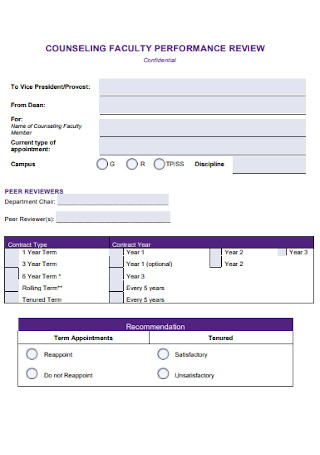
Faculty Counseling Form
download now -
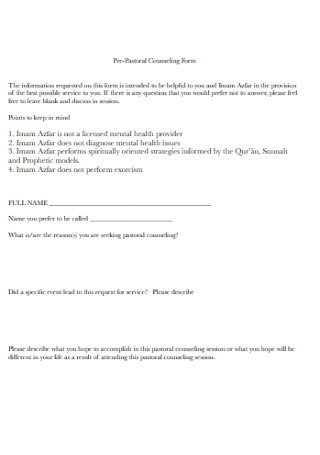
Pre-Pastoral Counseling Form
download now -
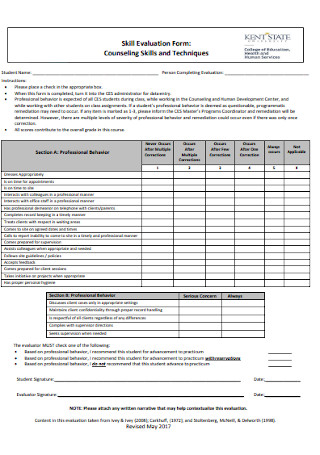
Counseling Skill Evaluation Form
download now -
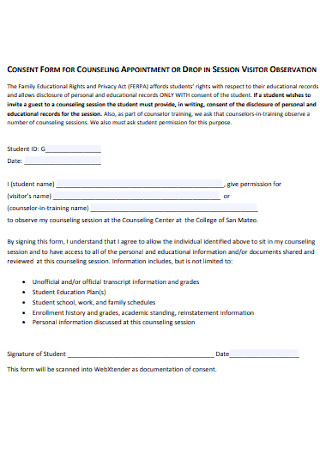
Counseling Appointment Consent Form
download now -
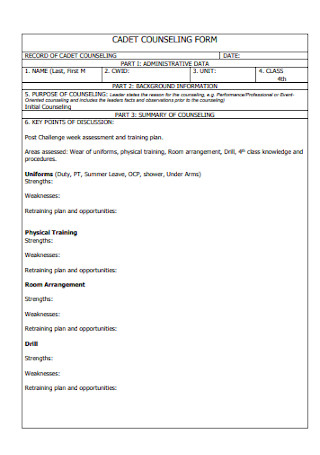
Sample Cadet Counseling Form
download now -
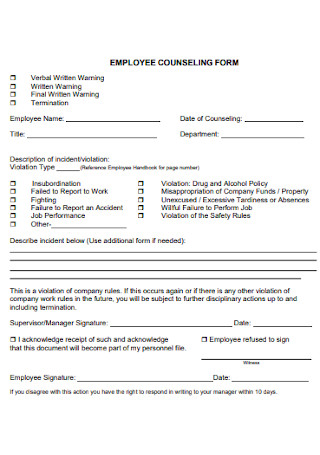
Sample Employee Counseling Form
download now -
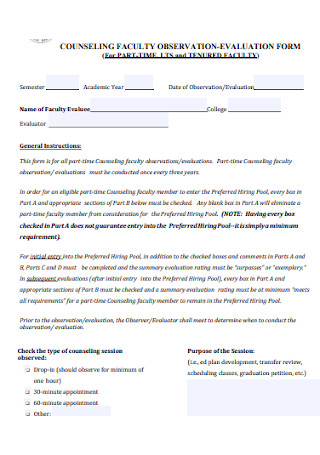
Counseling Faculty Observation Form
download now -

School Counseling Practicum Consent Form
download now -
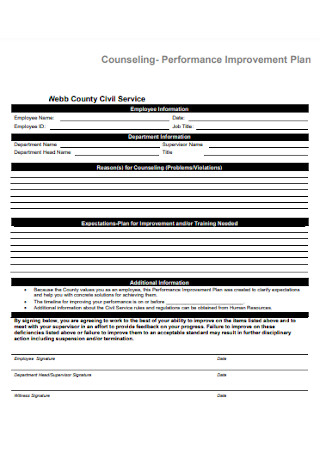
Counseling Performance Improvement Form
download now -
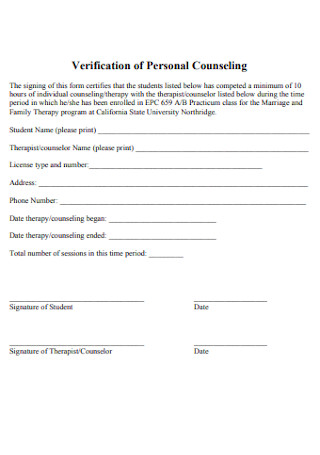
Verification of Personal Counseling Form
download now -
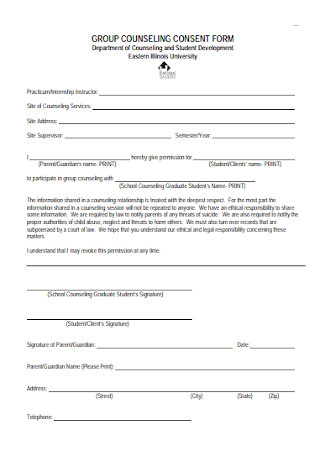
Group Counseling Consent Form
download now -
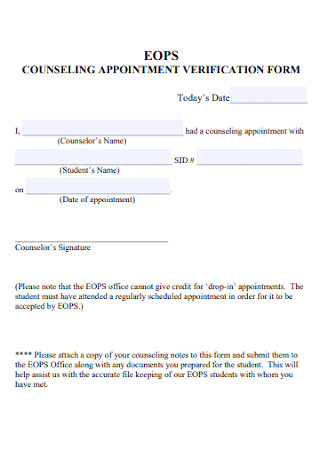
Counseling Appointment Verification Form
download now -
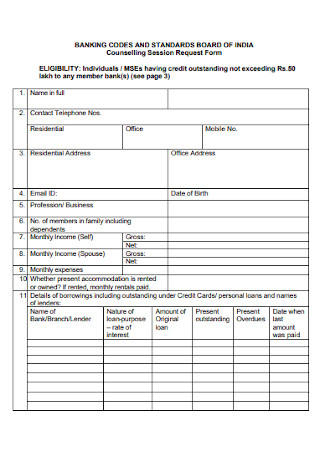
Counselling Session Request Form
download now -
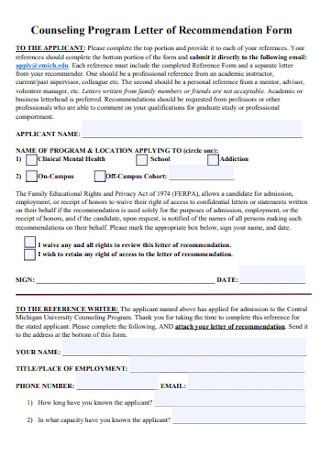
Counseling Program Letter of Recommendation Form
download now -
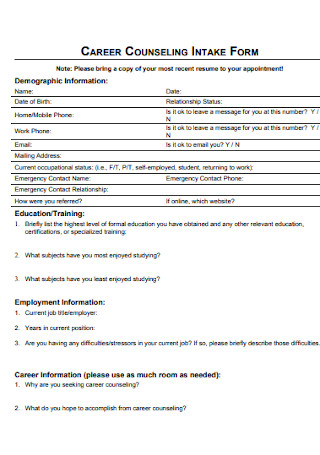
Career Counseling Intake Form
download now -

Counseling Scholarship Application Form
download now -
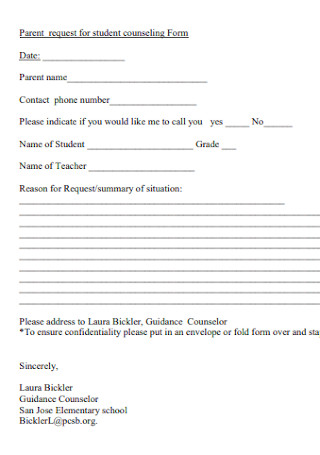
Parent Request for Student Counseling Form
download now -
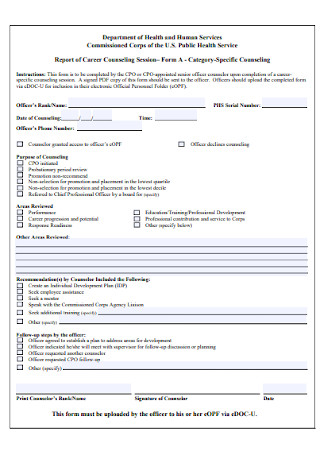
Report of Career Counseling Session Form
download now -
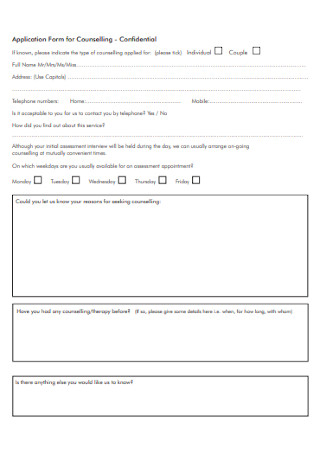
Application Form for Counselling
download now
What Is Counselling?
Counseling, or ‘therapy’ as it is popularly called, falls under the umbrella term ‘talking therapies‘ and allows people to address their difficulties and challenging emotions in a secure, private setting. The name might mean different things to different individuals, but generally, it refers to a process people pursue when they want to change their lives or delve deeper into their thoughts and emotions. A therapist or counselor is not there to sit you down and give you instructions. Instead, they will encourage you to discuss your concerns to understand any underlying issues and your unique thought processes. The therapist may then establish a plan of action to assist you in resolving your problems or finding coping mechanisms. According to statistics, 78 percent of those who have had counseling have a greater awareness of themselves. Following treatment, 78% of clients reported that their comprehension of themselves had improved.
Benefits of Counselling
Life will surely toss you some curve balls, but you can learn to knock them out of the park with some assistance. Life’s difficulties are inevitable, and when the going gets tough, we could all use a helping hand to shine a light on the situation. Truth and courage are not always pleasant, but they are never a sign of weakness. Whether you are struggling with depression, anxiety, relationship troubles, low self-esteem, or lack of direction in life, counseling can assist you. Here are the nine most significant advantages of counseling:
Signs to See a Therapist
If you have a documented (or suspected) mental health disorder such as anxiety or depression, your doctor may have previously suggested therapy as symptom management. However, counseling can be beneficial even if you do not have a recognized mental health disorder. Some forms of treatment can also assist with issues such as financial stress and low self-esteem. But at what point do stress, grief, and fatigue necessitate regular meetings with a qualified mental health professional? Here are the indications that therapy may be necessary.
1. You’re super overwhelmed
It is distressing to be overburdened with too many academic or work-related responsibilities. And whether or not there is a clear explanation for your extreme stress, chronic stress can hurt your health, so it’s crucial to find a means to manage it. Stressed individuals have difficulty concentrating, have increased fatigue, and struggle with short-term memory. However, it can also produce long-term problems, such as hastened cognitive decline. Numerous causes of stress and feeling overwhelmed, such as anxiety, trauma, and interpersonal troubles can be addressed through therapy.
2. You’re sleeping excessively or insufficiently
Sleep and mental health are interdependent. Sleeping well may be more challenging if you have mental health issues. And inadequate sleep increases the likelihood of developing mental health issues. Anxiety, sadness, bipolar disorder, and ADHD are notably associated with sleep difficulties. Sleep-disrupting mental health issues can be better managed with the assistance of psychotherapy. However, having a diagnosable mental health disorder for insufficient sleep is not necessary to negatively impact your mental health. According to a 2018 review of data, sleep deprivation can cause mood swings and make you more emotionally susceptible. Some forms of therapy can help you improve your sleep hygiene, provide you with tools to sleep better in general and assist you in coping with the repercussions of insufficient sleep.
3. You shun social interaction or are unable to maintain relationships
There may be an underlying cause if you find yourself withdrawing from friends, isolating yourself, and distancing yourself from your partner(s). Anxiety, insomnia, and stress can all play a part. As with stress and poor sleep, social isolation can have adverse effects. Socially isolated individuals are more prone to acquire specific health issues (such as depression and chronic pain), be less active, and consume less healthy diets. Socially inhibiting mental health disorders can be managed with the assistance of psychotherapy. It can also assist you in overcoming any social anxiety you may be experiencing.
4. Your anxious thoughts are all-consuming
It is difficult to convince your brain to stop worrying, a familiar sensation. You may be suffering intrusive thoughts if your ideas begin to dominate and interfere with your day-to-day life. Specific mental health problems increase the likelihood of having intrusive thoughts. However, anyone can encounter them. According to research, counseling can help individuals learn how to manage disturbing thoughts and regain control of their lives.
5. You can’t control your emotions
According to the Centers for Disease Manage and Prevention, a significant symptom of mood or anxiety disorders is the inability to control one’s emotions. Being an emotionally sensitive individual does not necessarily preclude emotional control. But if your feelings interfere with your daily life, counseling may help you achieve more dynamic control. In reality, cognitive behavioral therapy (CBT) is an excellent method for learning how to manage your emotions better.
6. You have no interest in anything
According to research, individuals with severe depression frequently lose interest or pleasure in hobbies and activities. Loss of interest in enjoyable activities might make it more challenging to get stress relief and maintain certain relationships. According to research, psychotherapy is an effective treatment for depression. It was also determined that treatment has longer-lasting effects than pharmaceuticals and that most individuals prefer therapy to drugs.
7. You feel hopeless
Hopelessness is a prevalent symptom of depression. Depression is more likely to be clinically diagnosed in those who feel hopeless. If you suspect depression, you should seek treatment as soon as possible. Depression can lead to suicidal thoughts and ideas and self-harm if left untreated. According to research, between 2011 and 2020, suicide was the second most significant cause of death for persons aged 10 to 34.
How to Choose a Counselor
Choosing a counselor is a personal and consequential decision. Your counselor is your emotional and mental health companion. Your counselor is available to guide you through a variety of life-challenge-related decisions. How do you pick the most exemplary counselor for your needs? Here are seven essential considerations to bear in mind.
1. Get Referrals
Create a list of potential counselors as a first step. Ask your primary care physician for a list of referrals. You can contribute to this list by requesting recommendations from family, friends, and other healthcare professionals. Research the credentials and experience of the counselors on Healthgrades.com. Then, contact the office of each counselor to determine if they are accepting new patients. If so, request an appointment with the counselor for a consultation.
2. Investigate the Counselor’s Qualifications
When selecting a counselor, licensure is one of the most significant aspects. It indicates that the individual has the required education, skills, and experience to provide counseling services. Verify that the counselor has no history of malpractice or disciplinary action accusations. State websites can uncover the counselor’s medical school, training hospital, certificates, malpractice, and disciplinary history.
3. Consider the Advisor’s Background
When dealing with life’s obstacles, experience is crucial. The more experience a counselor has with an illness or program; the more probable your outcomes will improve. Determine whether or not the counselor has received training in areas relevant to your circumstance. Ask the counselor how many patients they have counseled utilizing the strategy and how well they did.
4. Consider Gender
It will help if you feel comfortable with your counselor’s gender because you will share personal information openly. Regarding counseling, your gender is also an essential factor to consider. The counseling requirements of men and women might vary and are frequently influenced by cultural, societal, or caregiving obligations. Inquire about the counselor’s most current training and experience with your illness and gender.
5. Evaluate Communication Style
Choose a counselor with whom you feel relaxed conversing and who supports your informational requirements. When you initially meet the counselor, ask them a question and observe the response. Do they encourage your queries and provide comprehensible answers? Did you feel that your counselor comprehended your position afterward? Find a therapist who is curious about getting to know you, will take your treatment choices into account, and will appreciate your decision-making process.
6. Read Patient Evaluations
Reading what others say about counselors might provide insight into their counseling style and practice management. Patient ratings often reflect individuals’ experiences with appointment scheduling, wait times, the office environment, and the politeness of office employees. You can discover how much patients trust the counselor, how much time they spend with patients, and how well the counselor answers queries.
7. Know What Your Insurance Covers
Your insurance coverage is a matter of practicality. To maximize insurance benefits and minimize out-of-pocket costs, you may need to find a counselor who participates in your plan. When selecting a counselor from your program, you must continue to consider credentials, experience, outcomes, and hospital quality.
FAQs
Is a counselor the same as a psychologist?
The method is the primary distinction between a counselor and a psychologist. Psychologists utilize techniques such as CBT to assist individuals in better managing their mental health. On the other hand, counselors encourage clients to develop their emotional management strategies while giving the necessary assistance.
Can a counselor diagnose you?
They can also analyze and treat any severe psychological problems you may be experiencing. Counselors utilize evidence-based practice, whereas counseling psychologists must adhere to literature and research-based treatments.
Is becoming a therapist worth it?
A profession in therapy can be highly fulfilling for someone who enjoys interacting with and assisting others. Helping others lead more productive, active, and joyful lives may be highly fulfilling.
If you have problems and don’t know what to do, wouldn’t you want an advise so you can attempt to solve them? This is the reason why these counseling forms are even present. These forms are provided so individuals can obtain the necessary sessions to fix or enhance themselves. Therefore, if you ever feel like you’re having troubles, whether they’re personal or professional, be sure to utilize these forms. If you’re not doing it yourself, do it for someone else. You might prevent that person from making a poor professional or personal decision.
